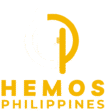Financial planning isn’t just about numbers—it’s about your future. It’s about making sure your hard-earned money works for you, not against you. But here’s the harsh truth: finding a truly competent and ethical financial advisor is harder than most people realize. The industry is riddled with conflicts of interest, and if you’re not careful, you might end up taking advice that benefits your advisor more than it benefits you.
The Problem with the Financial Advisory Landscape
Choosing the right financial advisor can significantly impact your financial future and help you achieve your unique goals.
In the Philippines, financial advisors typically fall into two categories. Both operate within a system driven by commissions, and that system directly influences the quality of advice you receive from your financial advisor.
1. The Holistic Financial Advisor—Selective and Expensive
The best financial advisors are those who take a comprehensive approach. They don’t just sell products; they craft long-term strategies based on your financial goals, risk tolerance, and overall situation. These advisers invest time in understanding your priorities before making recommendations, ensuring that every decision aligns with your financial future.
But here’s the catch: top-tier financial advisors aren’t available to everyone. Because of their experience and expertise, they set high standards for the clients they take on. Many require a minimum investment threshold or charge consultation fees, making them inaccessible to the average person. If you don’t meet their financial criteria, you’ll need to look elsewhere.
2. The Product Pushers—Commission-Driven Salespeople
The other type of financial advisor is far more common. These are the ones who enter the industry, usually with less than five years of experience, and focus on selling specific financial products—often insurance-based investments. Their income depends on commissions, which means they have a financial incentive to sell you something, whether or not it’s the best fit for your needs.
This doesn’t mean all commission-based advisers are bad. Some genuinely want to help their clients. But the system they operate within creates a fundamental conflict of interest. Many advisers are trained to prioritize sales over sound financial planning. They may push the same insurance policies or investment plans regardless of your unique situation. If you’re not careful, you could end up with a product that benefits them more than it benefits you.

The Harsh Reality: You’re On Your Own
Unlike other countries where financial regulations are stricter, consumer protection in the Philippines is weak when it comes to financial advice. You cannot rely on regulators to weed out bad actors. The burden falls on you to distinguish between those who have your best interests at heart and those who are simply looking to make a sale.
So, what can you do to protect yourself?
How to Find a Financial Advisor Who Works for You
The only way to ensure you’re getting solid financial advice is by educating yourself. You don’t need to become a financial expert, but you do need to understand enough to ask the right questions. Here are some key steps:
- Ask about compensation. How does your adviser get paid? If they earn commissions from selling financial products, be aware that their recommendations might be influenced by their incentives.
- Demand transparency. A trustworthy financial adviser will openly discuss fees, commissions, and any potential conflicts of interest.
- Check credentials. Look for certifications like Certified Financial Planner (CFP) or Registered Financial Planner (RFP). These credentials don’t guarantee integrity, but they do indicate a higher level of expertise.
- Listen for red flags. If an adviser seems overly eager to sell you a particular product without fully understanding your financial situation, walk away.
- Seek fee-based advisers. If possible, look for advisers who charge a flat fee rather than earning commissions. These professionals are more likely to provide unbiased advice.
Final Thoughts
Finding the right financial advisor isn’t easy, but it’s crucial for your financial well-being. The reality is that many so-called advisers are nothing more than salespeople in disguise. If you don’t take the time to vet them properly, you risk making financial decisions that serve someone else’s interests rather than your own.
Take control of your financial future. Educate yourself, ask the tough questions, and choose an adviser who prioritizes your success—not just their commission. In a world where financial security is increasingly uncertain, making the right choice today can mean the difference between thriving and struggling in the years to come.
Check this out for more in depth information!
For more tips check out this link!






